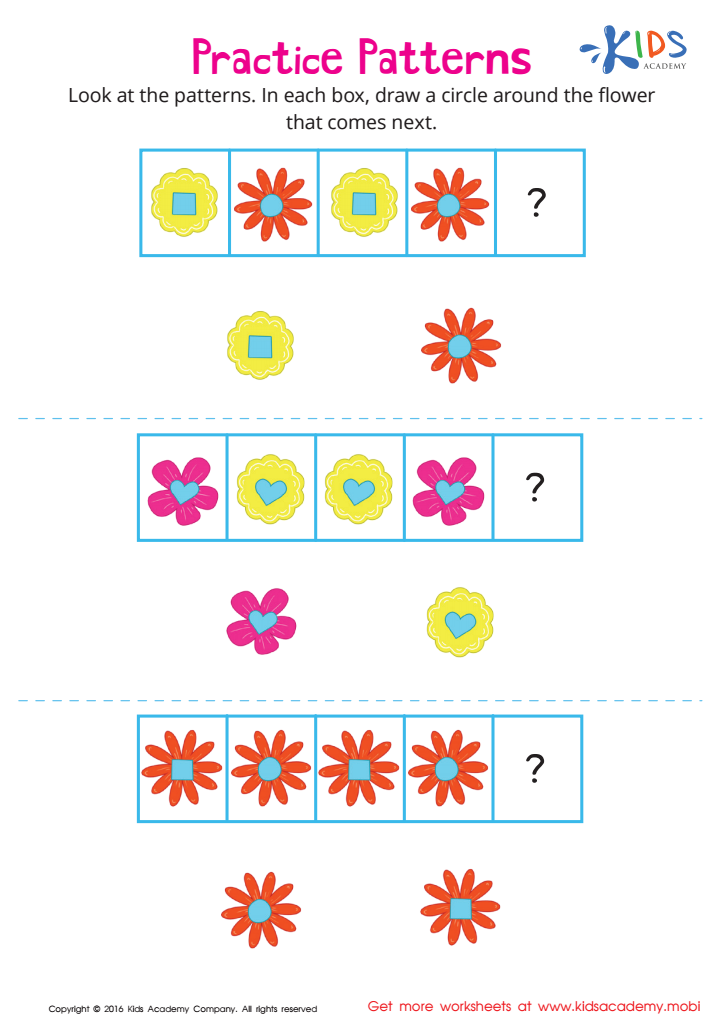Basic Math Skills Matching Worksheets for Ages 4-8
5 filtered results
-
From - To
Discover our engaging Basic Math Skills Matching Worksheets, perfect for children ages 4-8. These thoughtfully designed worksheets help young learners develop essential math skills, including number recognition, counting, and matching objects to numbers. With colorful illustrations and interactive activities, your child will enjoy learning foundational math concepts while having fun. Our printable resources provide a solid foundation for your child's education, fostering confidence and a love for math. Ideal for use at home or in the classroom, these worksheets are an excellent tool to support your child's early math development. Start their journey towards math success today!
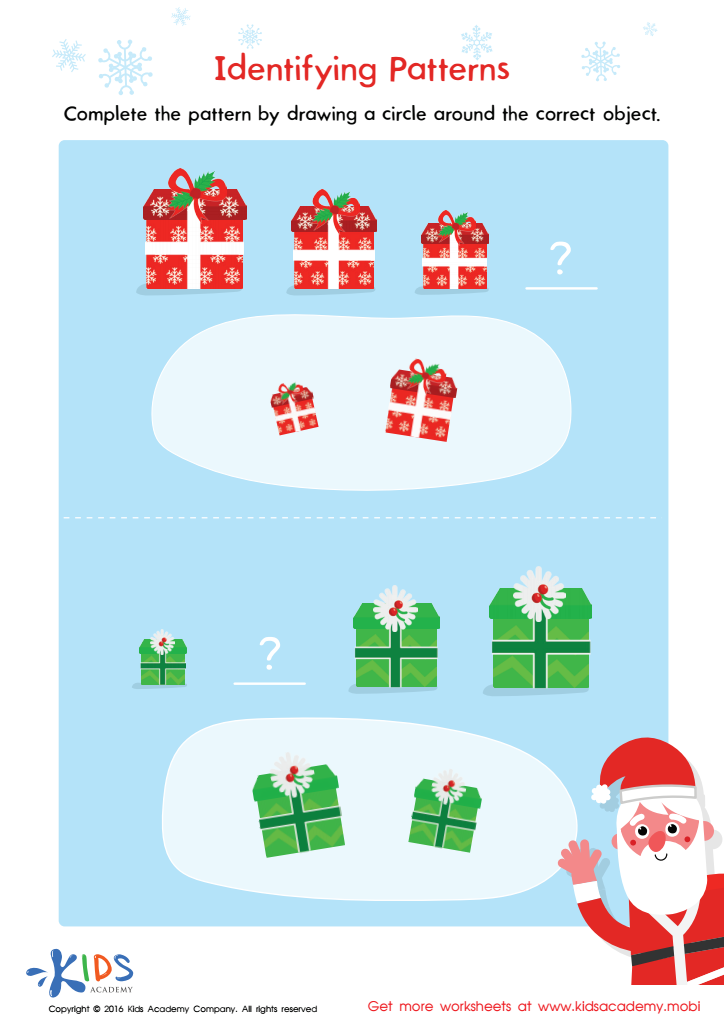

Identifying Patterns Worksheet
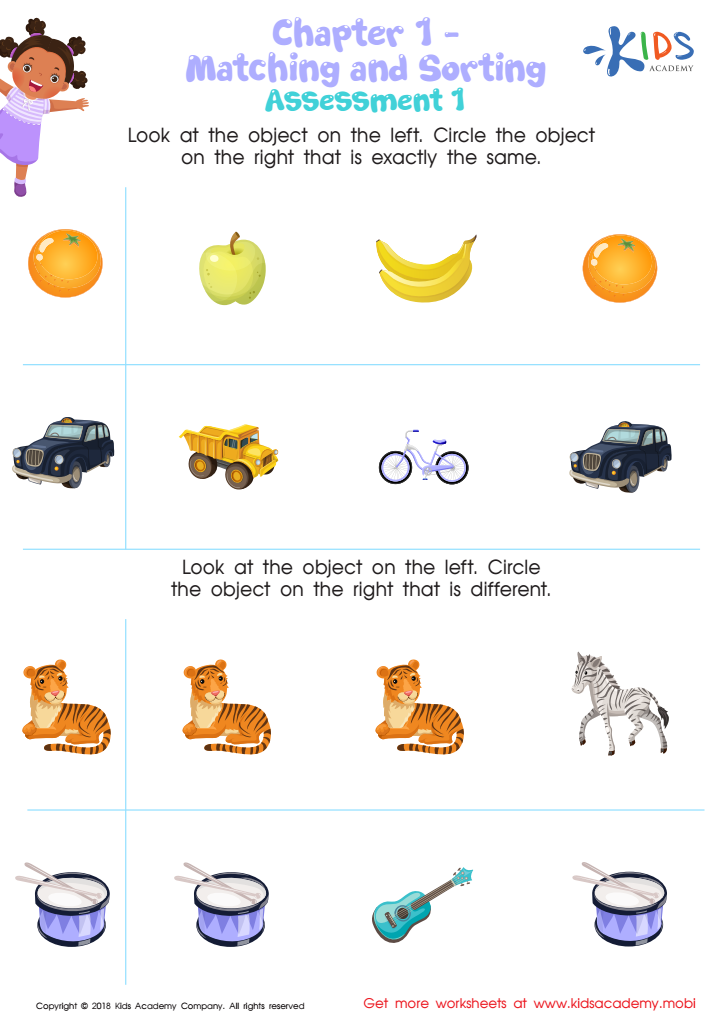

Matching and Sorting for Preschool: Assessment 1 Worksheet
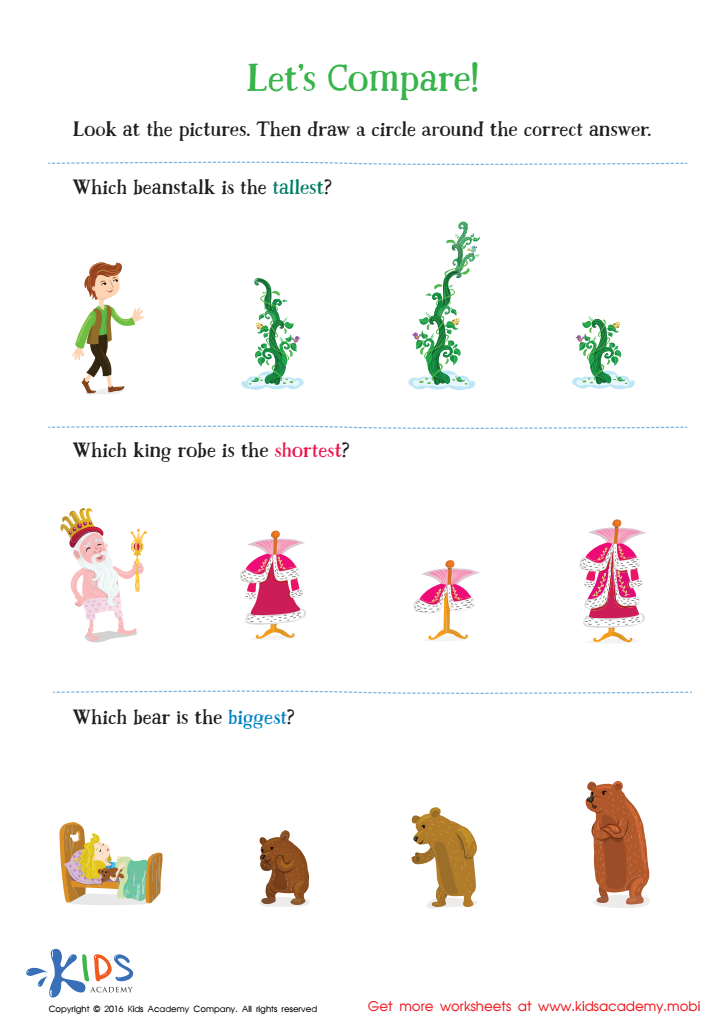

Fairy Tale Worksheet: Let's Compare
Basic math skills are foundational building blocks that set the stage for academic success and problem-solving abilities. For children aged 4-8, mastering these skills is crucial as they are at a developmental stage where they can easily absorb and understand basic concepts.
Parents and teachers should prioritize these skills because they encompass essential knowledge areas such as number recognition, counting, basic addition and subtraction, and shape identification. These are not just academic exercises; they also enhance cognitive development and logical thinking. Matching activities, specifically, are effective tools in this learning process. They aid in improving memory, attention to detail, and the ability to make connections between concepts.
These basic math skills are precursors to more advanced math concepts. Without a firm grasp of them, a child might struggle with future topics in mathematics, creating a learning gap that can negatively impact their confidence and academic progression. Furthermore, developing these skills through engaging activities fosters a positive attitude towards learning and encourages a lifelong curiosity about the subject.
Investing time and resources into teaching and reinforcing these foundational skills prepares children for a smoother transition into more complex math in later grades and forms a critical component of their overall education.
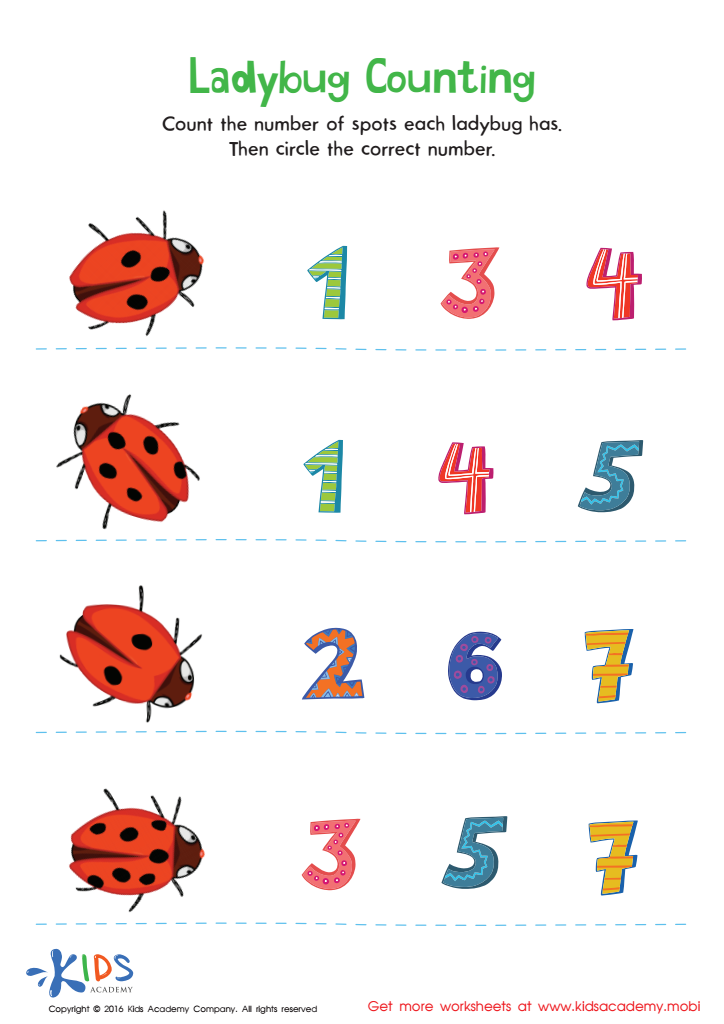
 Assign to My Students
Assign to My Students

